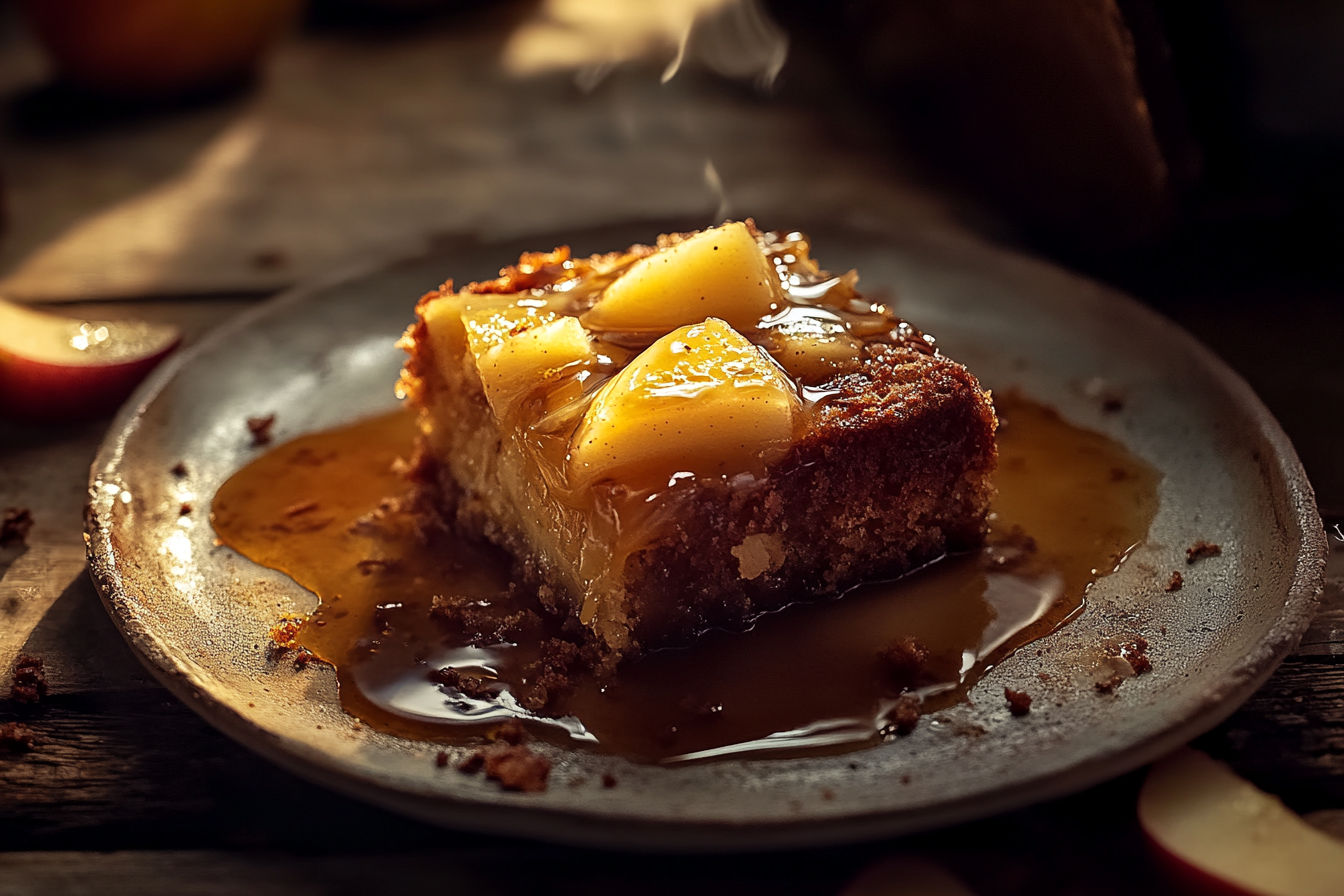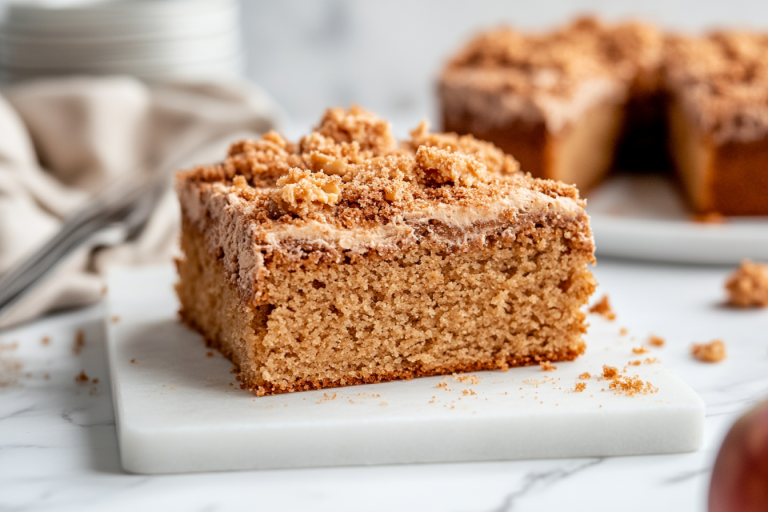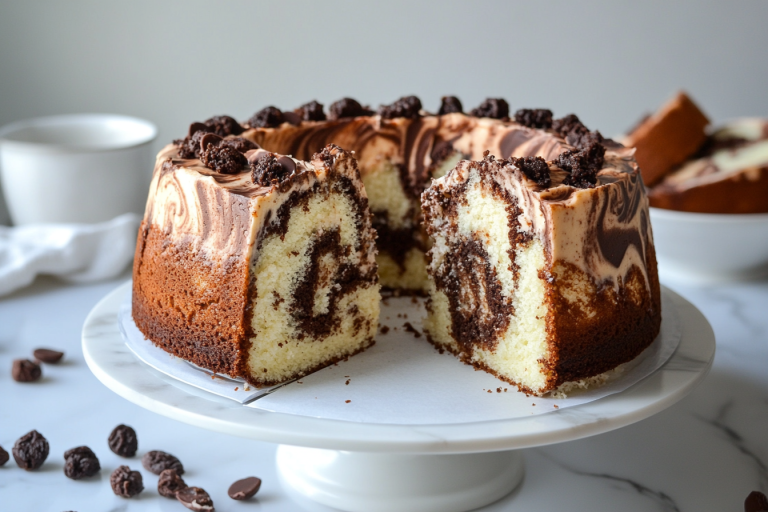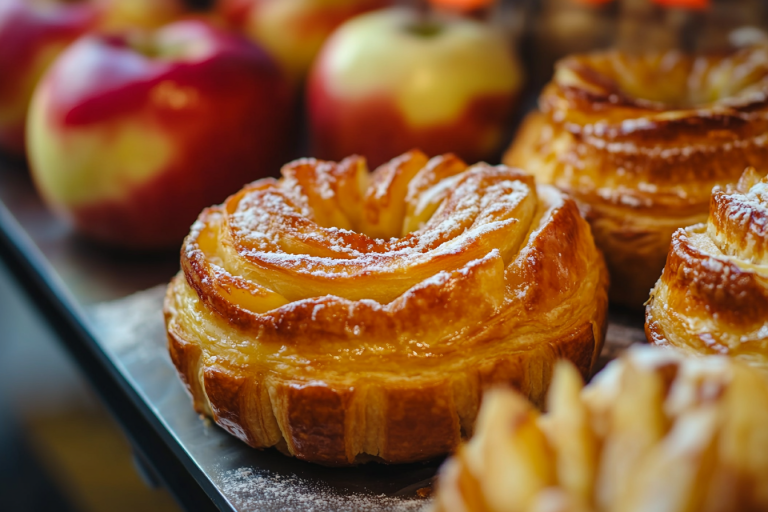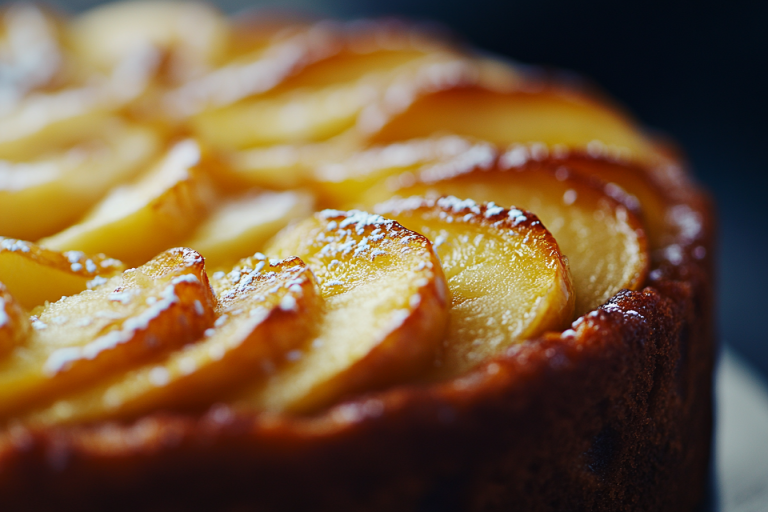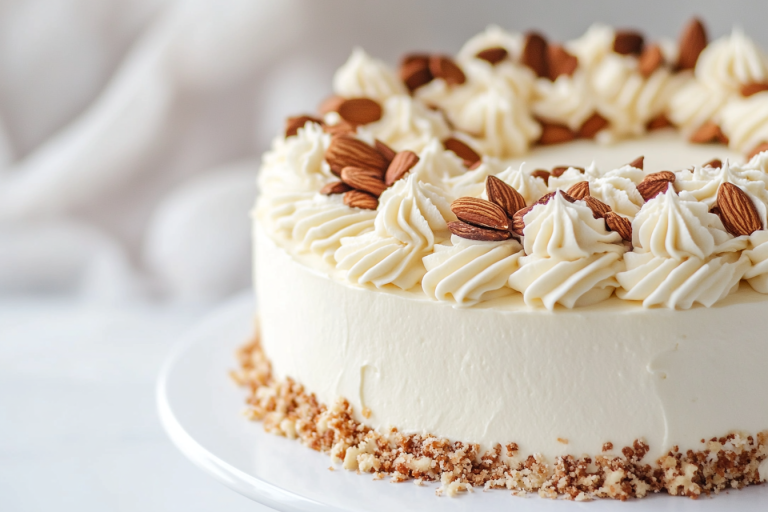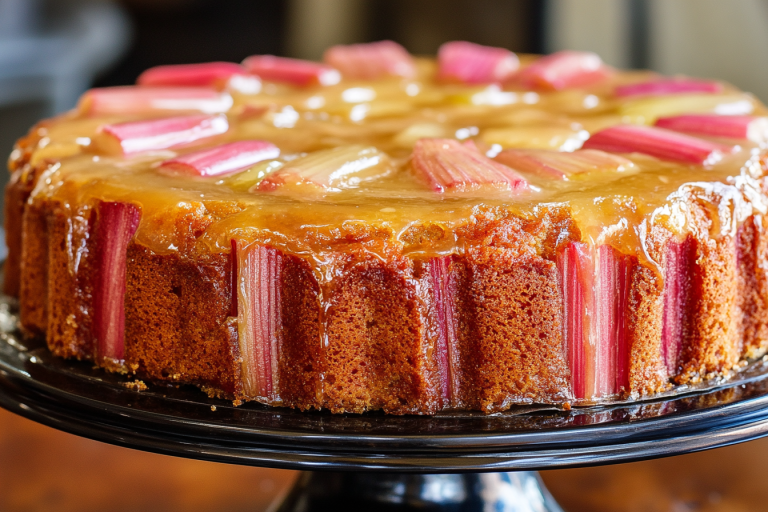Applesauce Cake Recipe That’s Moist, Easy & Packed with Flavor
Ever stared at that half-used jar of applesauce in your fridge and thought, What can I do with this? I’ve been there too—and I found the answer: applesauce cake. It’s moist, warmly spiced, and one of the most comforting bakes I know. The best part? You don’t need any fancy equipment or rare ingredients.
I’ve made this applesauce cake more times than I can count. It’s my go-to recipe for potlucks, cozy fall weekends, or just when I want the house to smell amazing. In this post, I’ll walk you through every step of making the perfect applesauce cake—complete with tools, ingredient functions, variations, tips, and common mistakes to avoid.
By the end, you’ll have all the confidence you need to make a cake that’s simple, satisfying, and totally unforgettable.
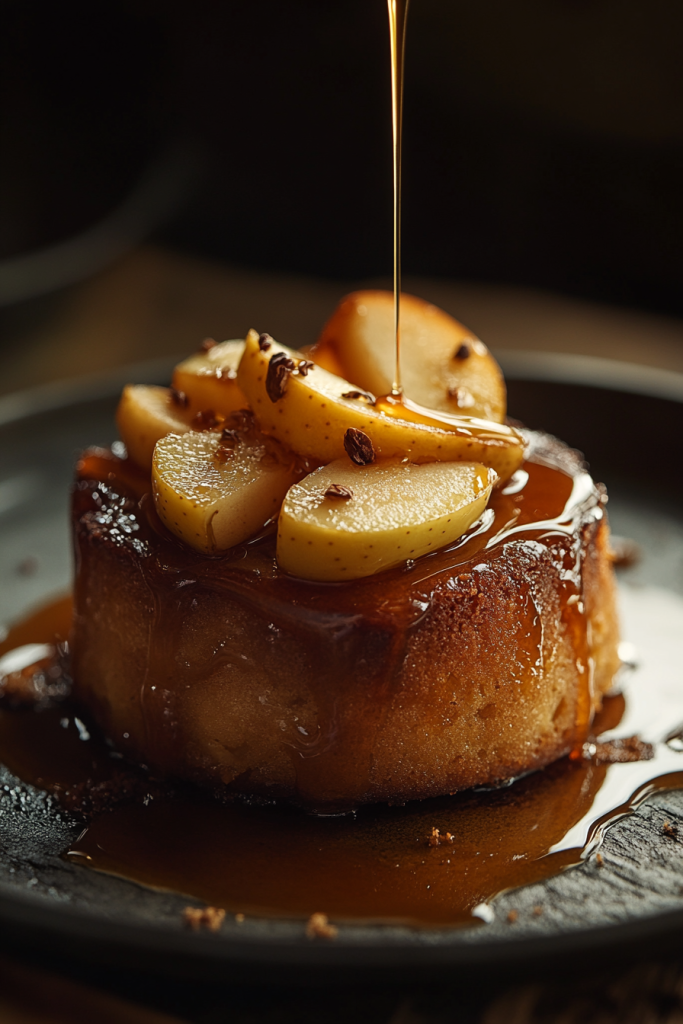
What is Applesauce Cake?
Applesauce cake is an old-fashioned dessert that’s been passed down through generations—and for good reason. It’s a soft, spiced cake where applesauce acts as both a flavor booster and a moistening agent. That means you get a deliciously tender cake without needing a ton of butter or milk.
This cake dates back to the Depression era, when people had to make do with less. Applesauce helped stretch ingredients like eggs, sugar, and oil, and added natural sweetness and moisture. Over time, it became a beloved treat in American homes, especially during fall and holiday seasons.
Today, applesauce cake is a blank canvas for your creativity. You can make it with nuts, raisins, chocolate chips, or even top it with cream cheese frosting. It works as a sheet cake, layer cake, or even muffins. Plus, it stores beautifully and tastes even better the next day!
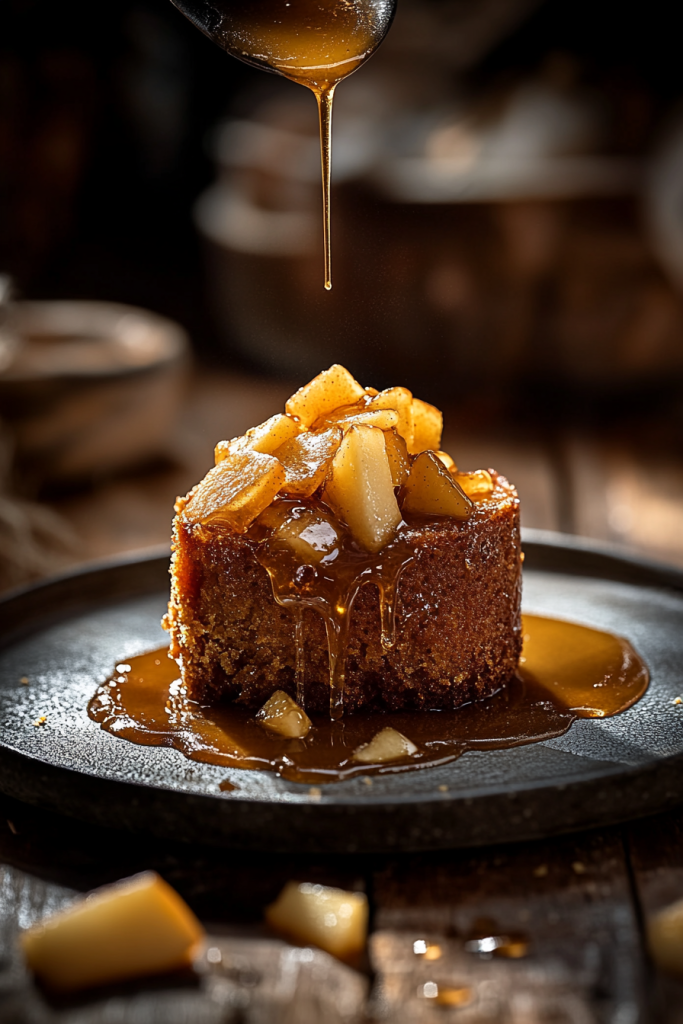
Materials Needed
Here’s a detailed breakdown of everything you need to make a truly outstanding applesauce cake. Don’t worry—it’s all pretty straightforward.
Ingredients and Their Purpose
| Ingredient | Quantity | Role in the Cake |
|---|---|---|
| All-purpose flour | 2 cups | Provides structure and stability |
| Unsweetened applesauce | 1½ cups | Adds moisture, acts as a fat replacer, and provides natural sweetness |
| Granulated sugar | 1 cup | Basic sweetness |
| Brown sugar | ½ cup | Adds moisture and depth with molasses flavor |
| Eggs | 2 large | Binds everything together |
| Vegetable oil | ½ cup | Keeps the cake rich and soft |
| Baking soda | 1 teaspoon | Reacts with the applesauce for leavening |
| Baking powder | 1 teaspoon | Helps the cake rise evenly |
| Ground cinnamon | 2 teaspoons | Main warm spice |
| Ground nutmeg | ¼ teaspoon | Adds complexity and warmth |
| Salt | ½ teaspoon | Enhances all the other flavors |
| Vanilla extract | 1 teaspoon | Adds aroma and rounds out the flavor |
| Chopped walnuts (optional) | ½ cup | Adds texture and nutty richness |
| Raisins (optional) | ½ cup | Natural sweetness and chewiness |
Tools You’ll Need
| Tool | Purpose |
|---|---|
| Large mixing bowls | Separate dry and wet ingredients |
| Whisk | Mix ingredients evenly |
| Measuring cups & spoons | Precision matters in baking |
| 9×13-inch baking dish | Standard pan size for this cake |
| Rubber spatula | Great for folding and scraping the bowl |
| Cooling rack | Helps the cake cool evenly and quickly |
| Oven thermometer (optional) | Ensures accurate baking temperature |
Step-by-Step Instructions
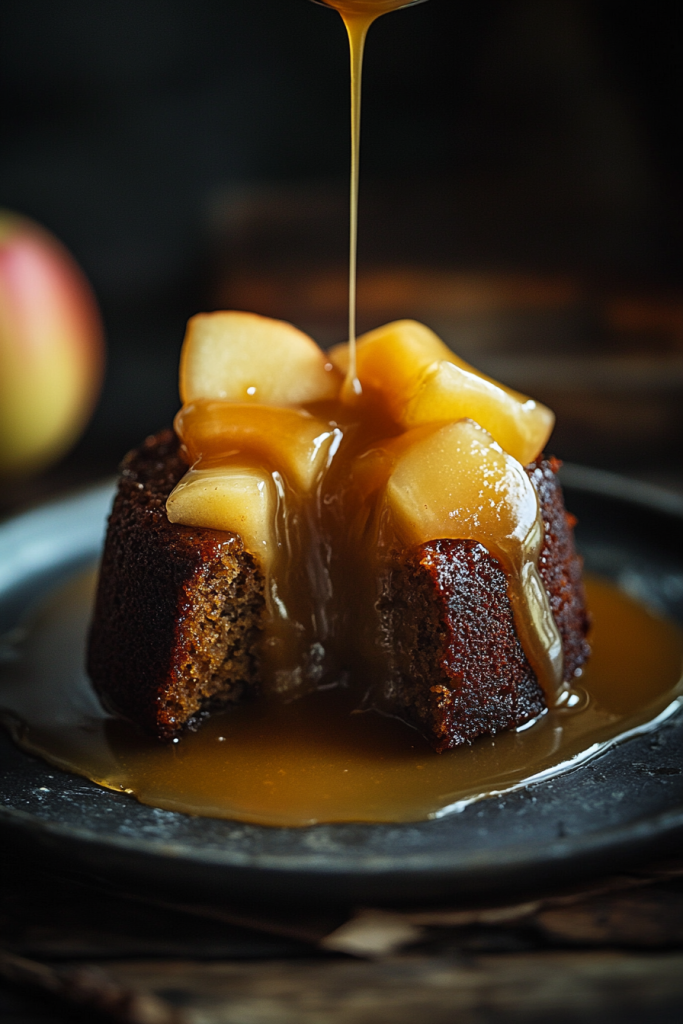
This cake is as simple as it gets. No stand mixer needed—just a few bowls and a whisk.
- Preheat the oven to 350°F (175°C). Grease a 9×13-inch baking pan with nonstick spray or butter.
- Mix dry ingredients: In a large bowl, whisk together the flour, cinnamon, nutmeg, baking soda, baking powder, and salt.
- Combine wet ingredients: In another bowl, beat the eggs. Add the applesauce, granulated sugar, brown sugar, oil, and vanilla. Stir until smooth.
- Combine everything: Gradually add the dry ingredients into the wet mixture. Stir just until there are no streaks of flour left. Do not overmix.
- Fold in extras: If using, gently fold in raisins or chopped walnuts.
- Bake: Pour the batter into the prepared pan and smooth the top. Bake for 40 to 45 minutes, or until a toothpick inserted in the center comes out clean.
- Cool and serve: Let the cake cool in the pan for 15 minutes, then transfer to a rack to cool completely. Serve plain, with a dusting of powdered sugar, or topped with frosting.
Similar Variations You Can Try
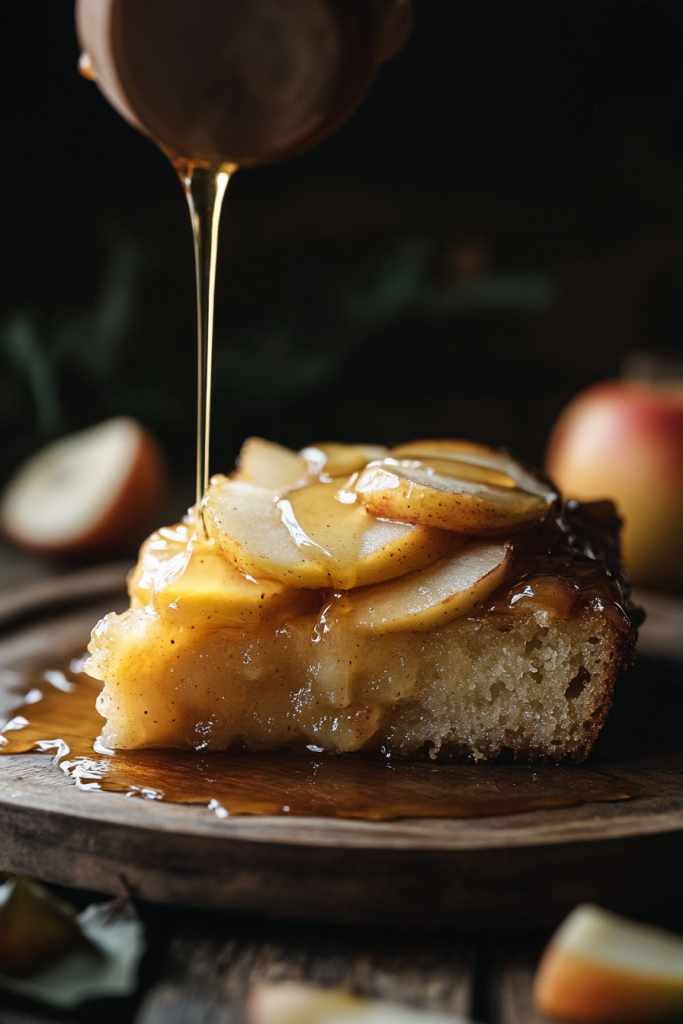
This recipe is flexible, so get creative! Here are some fun spins on the classic applesauce cake:
- Vegan Applesauce Cake: Use flax eggs (1 tbsp flaxseed + 3 tbsp water = 1 egg) and swap honey (if using) with maple syrup or agave.
- Gluten-Free Version: Use a 1:1 gluten-free flour blend with xanthan gum.
- Chocolate Applesauce Cake: Add ¼ cup cocoa powder and chocolate chips.
- Cider-Spiced Applesauce Cake: Replace ½ cup of applesauce with spiced apple cider.
- Apple-Cranberry Cake: Add fresh or dried cranberries for a tart burst.
- Applesauce Muffins: Use the same batter in muffin tins. Bake for 18–22 minutes.
Common Mistakes to Avoid
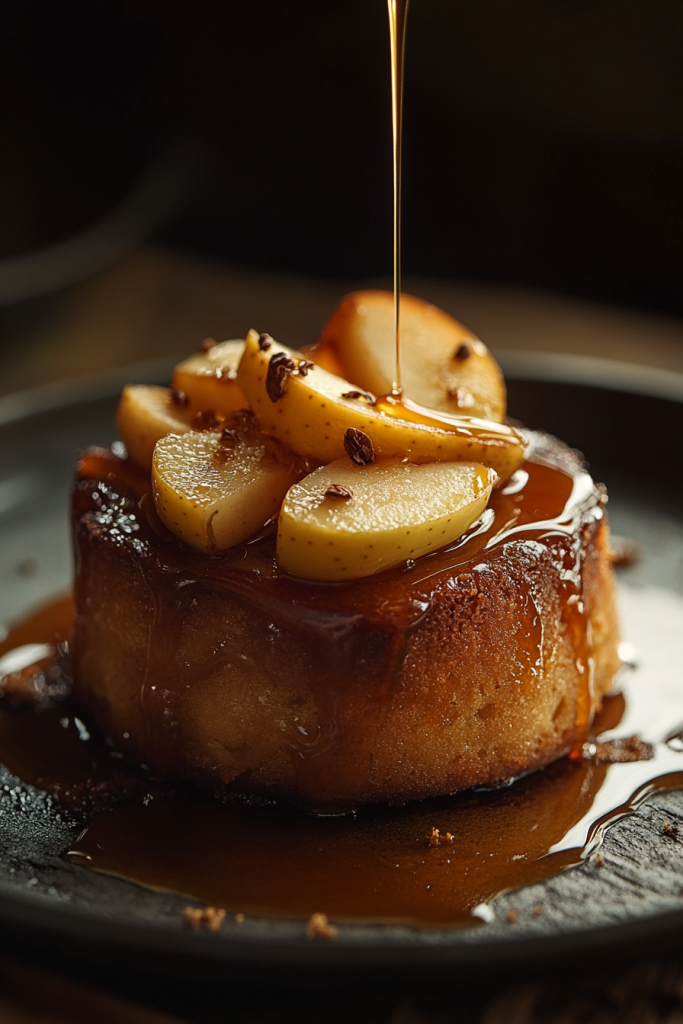
Even simple recipes have their trip-ups. Watch out for these:
- Using sweetened applesauce: It throws off the sugar balance. Stick to unsweetened.
- Overmixing: This leads to a dense, gummy texture. Mix just until combined.
- Incorrect oven temp: Always preheat and consider using an oven thermometer.
- Not greasing the pan well: Causes sticking, especially around the corners.
- Skipping the cool-down: Cutting too early will crumble the cake. Let it rest!
Tips for a More Nutritious Cake
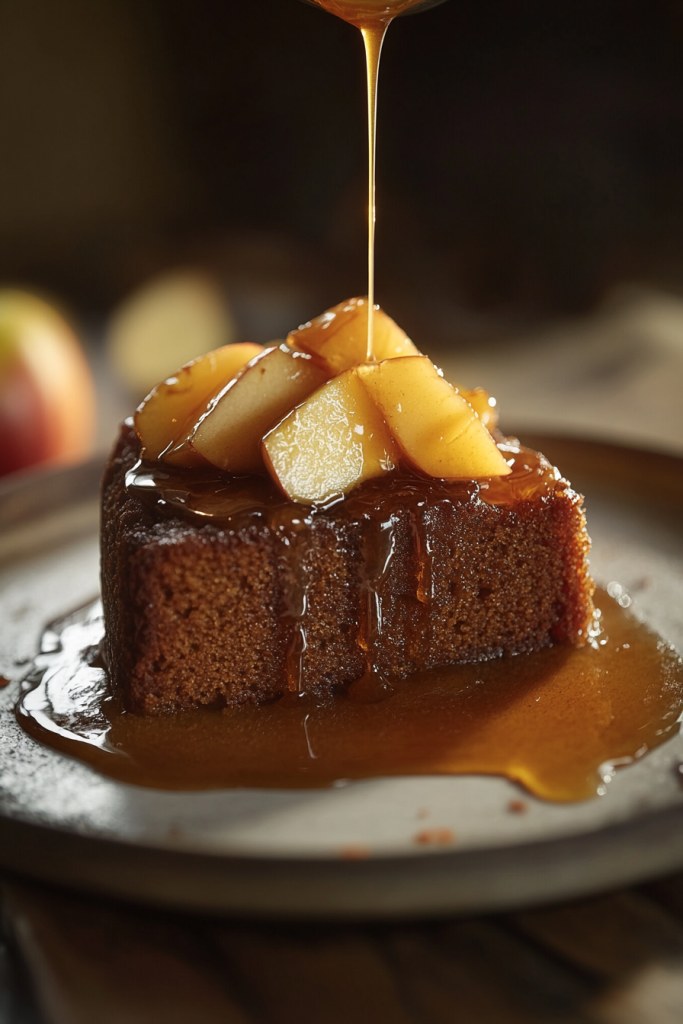
Looking to lighten things up a bit? Here are my favorite tweaks:
- Swap half the flour for whole wheat flour.
- Reduce sugar by ¼ cup without major flavor loss.
- Use Greek yogurt in place of half the oil to add protein and cut fat.
- Add grated zucchini or carrots to sneak in some veggies.
- Top with toasted oats or chopped nuts instead of frosting for a wholesome finish.
These swaps make the cake more nutrient-dense while still keeping it moist and delicious.
Tips for Success
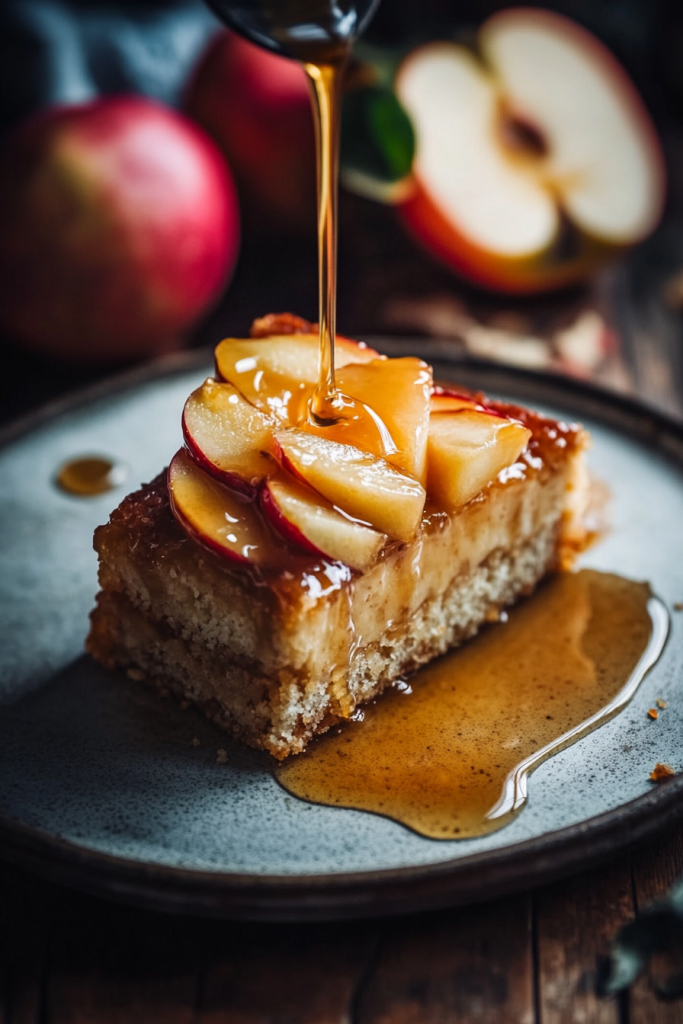
- Use room-temperature eggs and applesauce for a smoother batter.
- Don’t skip the spices—they’re the heart of this cake’s flavor.
- Make ahead: This cake tastes even better on Day 2.
- Store properly: Keep it covered at room temp for up to 3 days, or in the fridge for 5. It also freezes beautifully!
- Try mini loaf pans for gifting or portion control.
Key Terms to Know
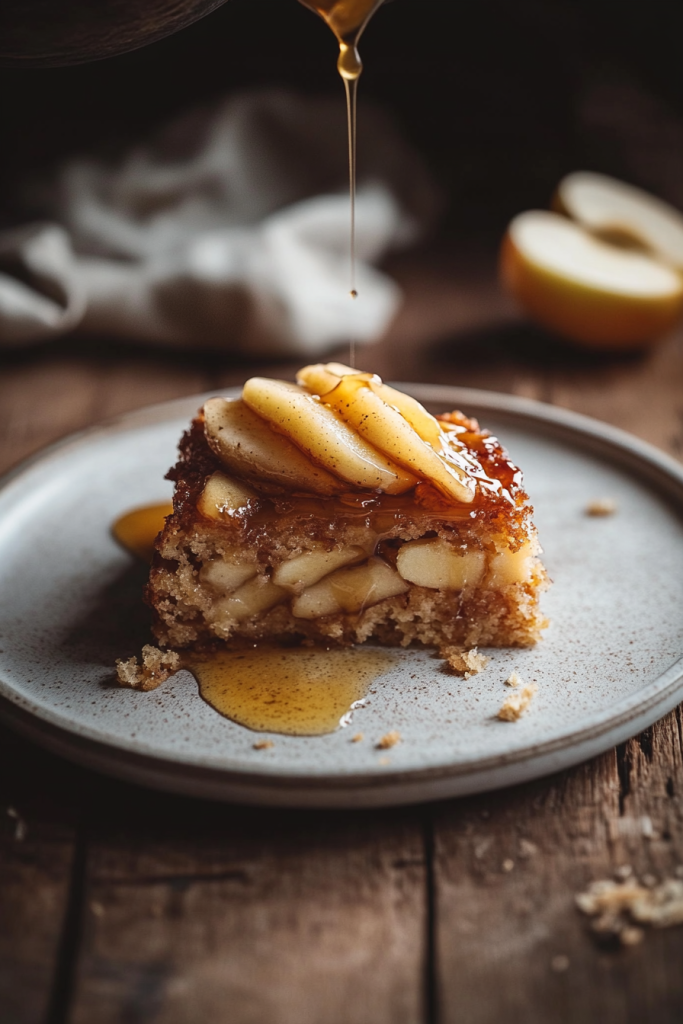
Here’s a quick glossary of baking terms for beginners:
- Fold: Gently mixing ingredients without deflating the batter.
- Leavening: Ingredients like baking soda or powder that make the cake rise.
- Creaming: A technique where butter and sugar are whipped to create air (not used here, but common in cakes).
- Sift: Passing dry ingredients through a fine mesh to remove lumps and aerate.
- Flax egg: A vegan egg substitute made from ground flaxseeds and water.
Why I Love This Applesauce Cake
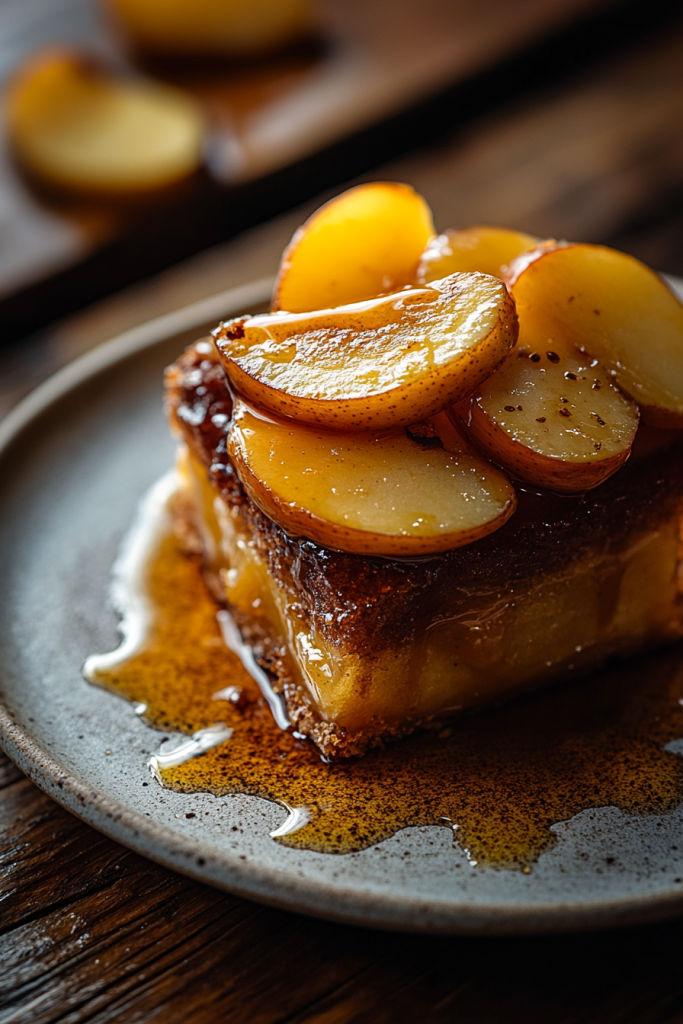
There are a million reasons why this cake is a household favorite. It’s simple, quick, and versatile. You don’t need to wait for butter to soften or go out and buy buttermilk. Everything comes together in one bowl (well, two if you’re being precise), and the results are always worth it.
What I really love, though, is the comfort. One bite of this cake tastes like fall leaves, holiday mornings, and grandma’s kitchen—all rolled into one. You can dress it up with frosting or enjoy it plain with a cup of tea. Either way, it hits the spot.
Outro
If you’ve got applesauce in your pantry and a craving for something cozy, this applesauce cake is your answer. It’s moist, flavorful, and totally beginner-friendly.
So, go ahead—preheat that oven and give it a try. Whether it’s your first time baking or your fiftieth, I promise this applesauce cake will be a hit.
Let me know how yours turns out, and don’t be afraid to make it your own. After all, the best cakes are the ones baked with a little curiosity and a whole lot of love.
